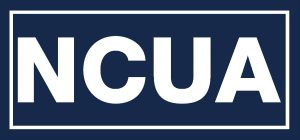If you have either a home equity line of credit (HELOC) or a home equity loan, you may have considered refinancing to get more favorable terms or to save money on interest. Before you refinance, however, there are some important things to consider to make sure it will help you achieve your goals.
Keep reading to learn more about refinancing a HELOC or home equity loan.
Refinancing a Home Equity Loan
A borrower will typically refinance a home equity loan for one of three reasons:
To Access Additional Financing
If you need additional money, refinancing into a new home equity loan will allow you to get the extra funds you need without ending up with two loans. A home equity loan will also have a better interest rate than other financing options—like personal loans.
A home equity loan is also ideal for those who need immediate access to the full amount of their loan. A HELOC, in comparison, is usually best for those who need to periodically draw smaller amounts.
To Shorten or Extend Your Loan Term
Refinancing a home equity loan could help you pay it off more quickly. If you have a 10-year home equity loan, for example, you can repay it in half the time by refinancing into a new 5-year loan.
Refinancing into a shorter loan term will mean that you will have to make higher monthly payments. But you will be saving money on the interest you will pay on the loan.
Refinancing can also be used to extend the length of your loan so you can have more time to repay it. While this will lower your monthly payments, it will cost you more in interest over the life of the loan.
To Get a Better Interest Rate
When interest rates decrease, you may be able to save money by refinancing. Lower interest rates allow you to pay less each month and save money on your total borrowing costs.
Home Equity Loan Refinancing Options
Refinancing simply means replacing your existing loan with a new loan. But, which loan should you choose? The following are two options to consider.
New Home Equity Loan
Replacing your existing home equity loan with the same type of loan can be used to change the loan terms or get a better interest rate when rates are going down.
Cash-Out Refinance
A cash-out refinance is well suited for those who want to refinance both their home equity loans and mortgages at the same time. This option is best when interest rates are going down.
With a cash-out refinance, you obtain a new mortgage to replace your current mortgage. The total amount that you borrow will be more than the amount owed on your home. The extra money you borrow (the cash-out) can be used for other purposes.
Refinancing a HELOC
There are two common reasons why people refinance HELOCs. Refinancing ensures that you can continue to enjoy the flexibility that HELOCs provide. It means you can continue to access the cash you need when you need it.
The Draw Period Is Coming to a Close
If your HELOC draw period is coming to a close but you still need a line of credit to draw from, refinancing will give you a new HELOC with a new draw period. This will allow you to continue borrowing the money you need with minimal or no interruption.
The Value of Your Home Has Increased
Home prices have risen substantially in just the past few years. An increase in your home value means you will have more home equity. Refinancing may allow you to obtain a new HELOC with a larger credit limit. This will allow you to borrow more when you need it.
Before You Refinance
Before you apply for a new loan to replace your existing home equity loan or HELOC, it’s important to consider the following questions to make sure refinancing makes sense for your situation.
Will I Save Money by Refinancing?
Although there are many benefits to refinancing, they could be offset by your new loan’s closing costs and other fees. Before you refinance, be sure you understand the costs to see whether refinancing is worth it.
Do I Have a Good Credit Score?
Your credit score will be checked when you apply for a new loan. Those with high credit scores are usually awarded the best rates.
Be sure to check your credit score before you apply. If yours is lower than expected, you may be able to raise it by paying off debt and working to keep the amount of credit you are using low compared to your available credit.
If you are a TEG Federal Credit Union member, we offer a free credit review that can help you understand your credit report and improve your score. We also offer assistance with credit report disputes.
Do I Have Too Much Debt?
When evaluating loan applicants, lenders consider how much debt they currently have before approving a new loan. If you have too much existing debt, you may be denied.
To assess an applicant’s debt level, lenders use a metric called the debt-to-income (DTI) ratio. You can easily calculate this ratio by dividing your current debts by your monthly income. The result is always expressed as a percentage.
Lenders prefer to see DTI ratios of 36% or less. If your DTI ratio is higher than 36%, you may be able to lower it by paying off some of your current debt.
Which Loan Option Is Best for My Needs?
Different loan options have unique features that set them apart, and they each have important benefits to consider. Be sure you understand how each loan works before making a decision. If you aren’t sure which option is best, your lender may make a recommendation. Your lender can also answer any questions you may have to help you understand the different types of loans.
Refinancing a Home Equity Loan or HELOC With TEG Federal Credit Union
If you are thinking about refinancing either a home equity loan or HELOC, TEG Federal Credit Union offers both loans with competitive interest rates. Also, neither loan has any closing costs. This lets you enjoy the benefits of a new loan without having to worry about additional expenses.
With our home equity loan, you can lock in the current rate and borrow between $25,000 and $250,000. Loan terms of up to 15 years are available.
And with our HELOC, credit lines of between $25,000 and $250,000 are available with a draw period of up to 10 years and a repayment period of up to 15 years.
Click below to learn more about our home equity loans and HELOCs to help you determine which option is best for your borrowing needs.












